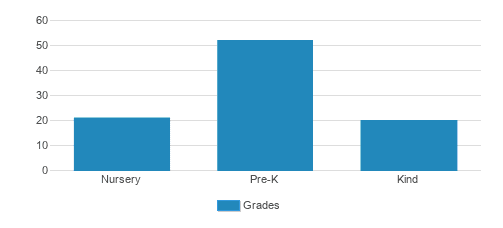Play Centers, Inc. is a not-for-profit corporation providing quality care and education to children.
Our programs are developmentally appropriate, focus on the whole child and his or her physical, emotional, social, and intellectual needs, and are largely guided by the interests and needs of the children in our programs and their families.
We welcome children of all abilities in our programs.Throughout our program design is a strong emphasis on learning through play as well as opportunities for discovery, hands-on-activities, and guided choices which serve to enrich learning.
The children are offered a balance of child-initiated and teacher-directed activities which alternate in quiet and active periods.
School Overview
School Type
Grades Offered
Grades Prekindergarten-Kindergarten
ADD/ADHD Support
Yes
Learning Difference Programs
Yes
Year Founded
39
Summer School Offered
Yes
Student Body
Total Students
93 students
Student Body Type
Co-ed
% Students of Color
17%
State avg.: 37%
Students by Grade

Academics and Faculty
Total Classroom Teachers
12 teachers
Student : Teacher Ratio
8:1
National avg.: 13:1
% Faculty w/Advanced Degree
5%
Average Class Size
10 students
Tuition and Acceptance Rate
Admission Deadline
None / Rolling
Acceptance Rate
100%
National avg.: 85%
Admissions Director
Sarah Thompson
School Notes
- Play Centers, Inc. is a not-for-profit corporation providing quality care and education to children. Our programs are developmentally appropriate, focus on the whole child and his or her physical, emotional, social, and intellectual needs, and are largely guided by the interests and needs of the children in our programs and their families. We welcome children of all abilities in our programs.Throughout our program design is a strong emphasis on learning through play as well as opportunities for discovery, hands-on-activities, and guided choices which serve to enrich learning. The children are offered a balance of child-initiated and teacher-directed activities which alternate in quiet and active periods.
Source: Verified school update
Frequently Asked Questions
What is the acceptance rate of Play & Learn At Community Place?
The acceptance rate of Play & Learn At Community Place is 100%, which is higher than the national average of 81%.
When is the application deadline for Play & Learn At Community Place?
The application deadline for Play & Learn At Community Place is rolling (applications are reviewed as they are received year-round).
Recent Articles

A Parent's Guide To Understanding High School Teaching Methods
This comprehensive guide helps parents navigate the various teaching methods used in today's high school classrooms. By understanding these approaches, you'll be better equipped to support your teen's learning journey, communicate effectively with teachers, and create a complementary learning environment at home.

February 08, 2025
Social Emotional Learning: Education's Hidden SymphonyA musician's perspective on Social Emotional Learning reveals how this educational framework orchestrates success through five essential emotional competencies.

January 24, 2025
A Roadmap For Starting A Private SchoolUse this roadmap as a set of talking points with your trusted mentors and professionals to start the private school of your dreams. You're not alone. Over the years, hundreds of folks like you have had the same dream. From Quintilian to Maria Montessori to Lucy Madeira Wing, visionary educators have established schools to teach according to their beliefs and methodologies.















